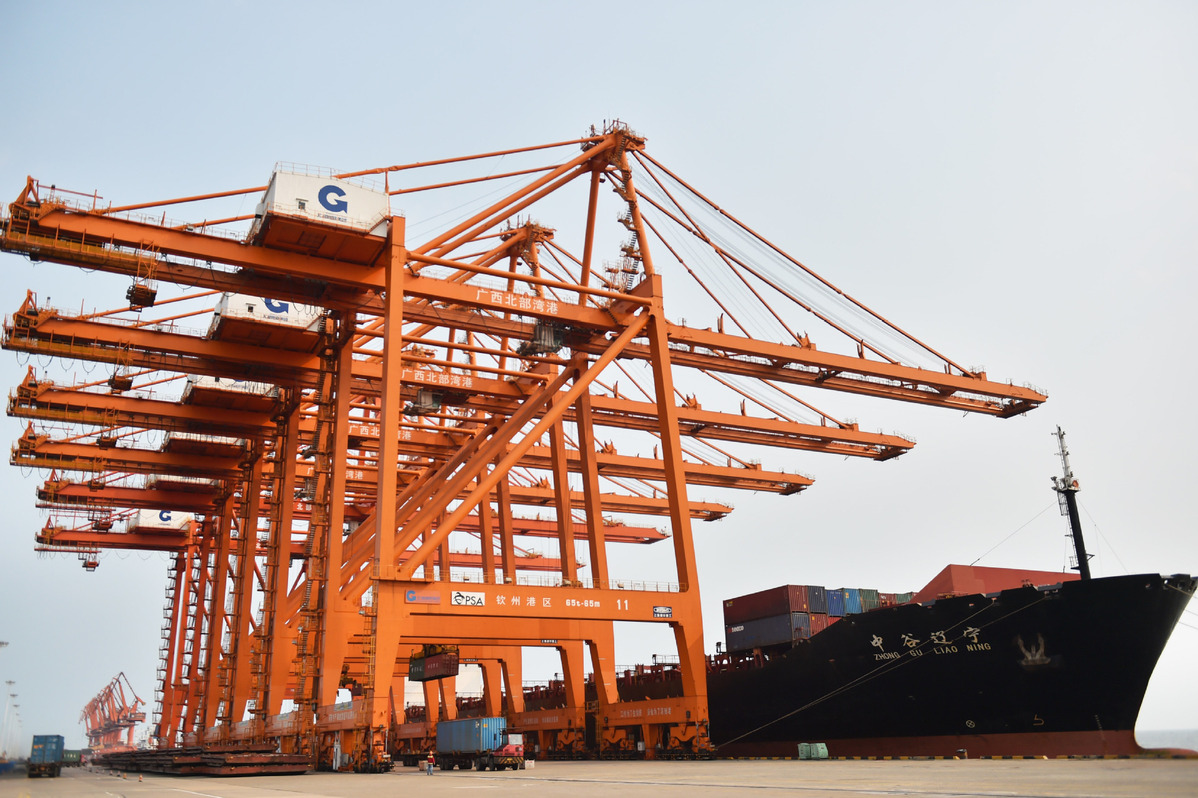RCEP free trade deal adds momentum to teetering global economy
Xinhua | Updated: 2020-11-22 07:59

CAIRO - The signing of the Regional Comprehensive Economic Partnership (RCEP), which establishes the world's biggest free trade bloc, would inject impetus into teetering global economy, Egyptian experts said.
The experts stressed that the agreement will be a locomotive for the global trade, investment and economic activities, which have suffered from acute recession and slowdown caused by the outbreak of the COVID-19 pandemic, accelerate the building of the Association of Southeast Asian Nations (ASEAN) economic community, and allow ASEAN to become dynamic and strong partners in promoting cooperation for shared prosperity.
After over 30 rounds of negotiations that started in November 2012 as well as a number of leaders' and ministerial meetings, the RCEP agreement was signed on Nov 15 by 15 countries, including 10 ASEAN countries and China, Japan, South Korea, Australia and New Zealand, making it the world's biggest free trade bloc.
The 15 participating countries of the RCEP account for around 30 percent of the global population, gross domestic product and trade.
"The agreement represents a true partnership at a very important time during which the global economy suffers from a severe slowdown as a result of the COVID-19 pandemic," Secretary General of the Egyptian-Chinese Chamber of Commerce Diaa al-Fiqqy told Xinhua, adding that the agreement would help the global economy recover and overcome the slowdown it is currently facing.
He also noted that the agreement constitutes a very strong trade move, due to the diversity and multiplicity of the economic fields it will cover, which include services, investment, e-commerce, communications and copyright.
"The deal can also help other countries which have economic and cooperation agreements with the member states of the RCEP," the Egyptian expert said. "The agreement also gives great hope to developing and emerging economies."
He stressed that China leads global trade and the international economy with no selfishness.
"China always raises the principles and values of cooperation, win-win cooperation and mutual benefits," said al-Fiqqy.
Meanwhile, Kareem al-Omda, professor of economy at the Arab Academy for Science Technology and Maritime Transport, said the agreement is an important economic tool to revitalize the economies of the RCEP member states, encourage global trade and activate investment and cooperation in economic fields.
"Such a big agreement would definitely push international economic growth, especially in light of the current economic stagnation," he explained.
The professor stressed that the document will greatly contribute to strengthening the Belt and Road Initiative and further help lay new foundations for a global economy based on justice, cooperation and mutual benefit.
"China and the member states of the deal chose cooperation and mutual benefits, not conflict and confrontation," al-Omda reiterated.
























